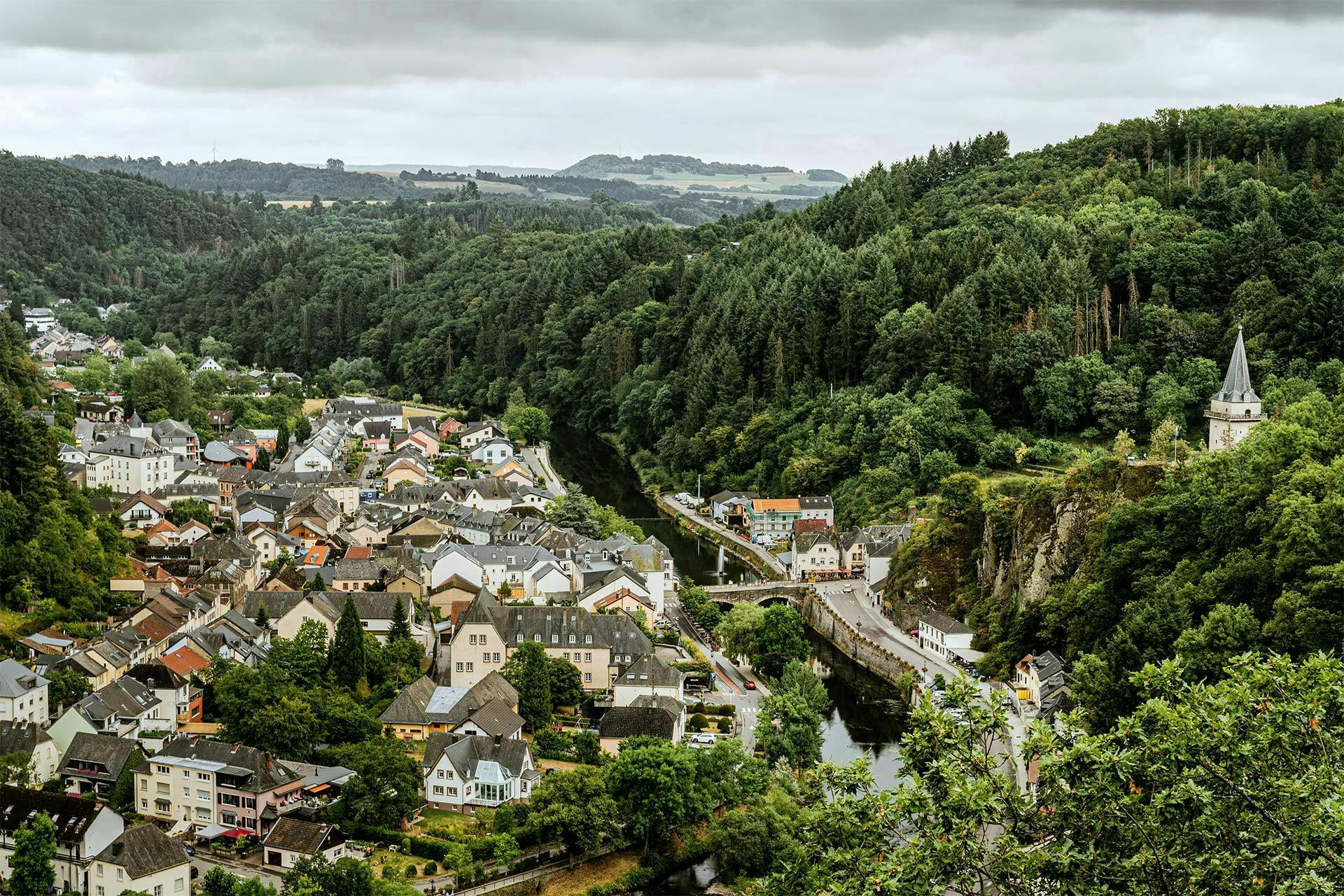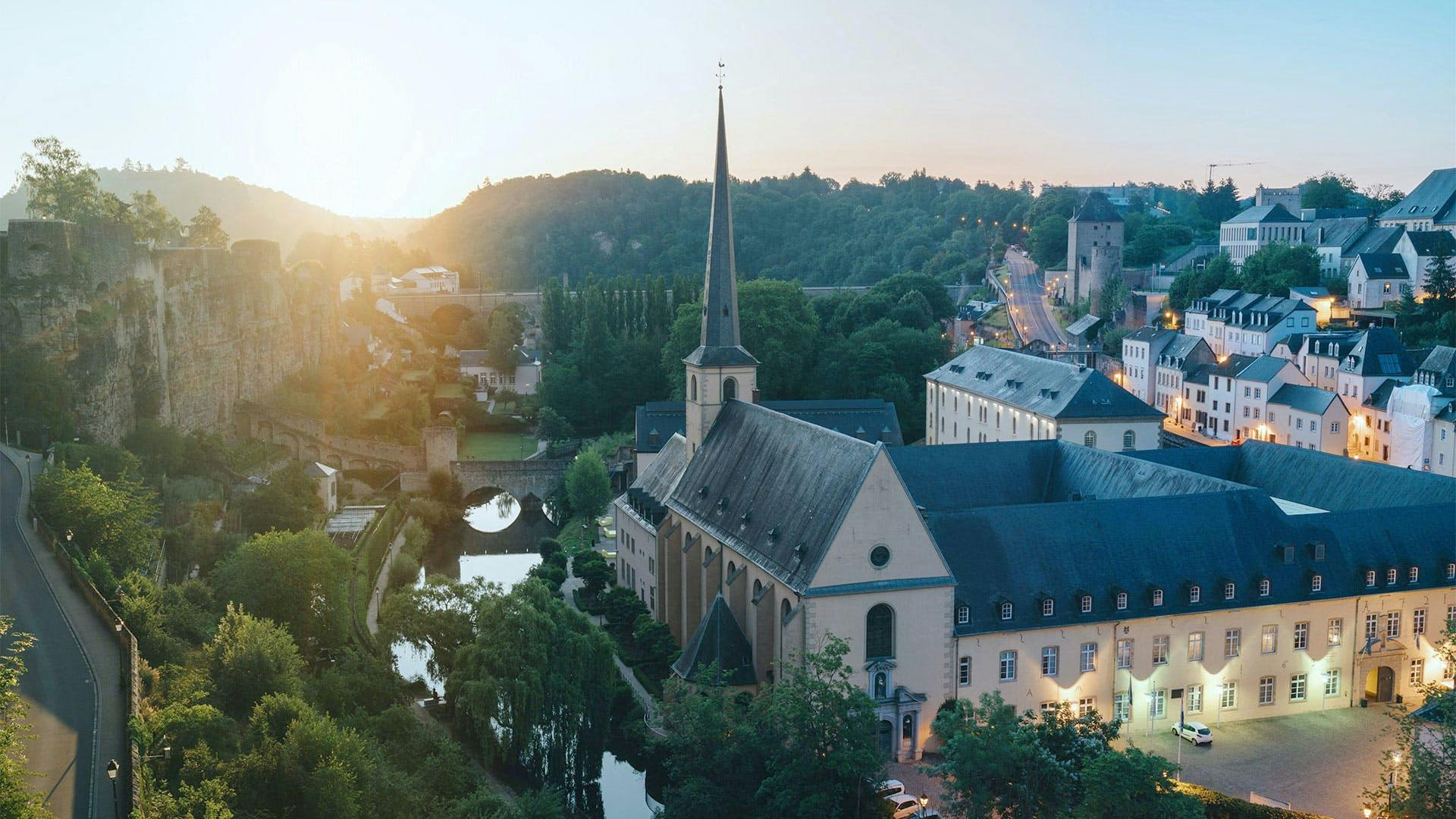Starting a business in Luxembourg: What you need to know
ith a high quality of life and diverse population, Luxembourg has a lot to offer both established and aspiring entrepreneurs. Open to both newcomers and new ideas, its small size enables the government to offer targeted, tailored support, and the closely knit ecosystem provides ample encouragement.
Openness defines Luxembourg. Nearly half of its population are not Luxembourg nationals, as the government and business work together to encourage immigration, and the country’s small size means it has no choice but to have an open economy and society. It takes just half an hour to drive across the country, which is well positioned in the center of Europe. Looking beyond the country’s border is ingrained in the nation’s outlook.
Historic and charming, Luxembourg City is home to nearly 123,000 of the national population of 626,100. Supported by an educated, multilingual and diverse population, Luxembourg offers excellent quality of life. Alongside the official languages of Luxembourgish, French and German, English is widely spoken, and nearly half of the workforce commutes from neighboring countries. Historically, this location has been a meeting point of German and French cultures, and more recently, the country has established strong ties with the English- and Portuguese-speaking world, as well as China and India.
Luxembourg understands that growth and innovation result from being open to new ideas and people. The government and the private sector work together to support entrepreneurs, and there is also a well-funded research, development and innovation ecosystem. The business environment is varied, including several innovation niches, particularly fintech, the space sector, cleantech, regtech and IT security, and the manufacturing sector here is also focused on innovation rather than mass production. The Grand Duchy’s financial services sector contributes to this dynamic as it acts as a hub for a variety of mainly cross-border activities.

Photo: Jean CarloEmer / Unsplash
What language do they speak in Luxembourg?
Luxembourg has three official languages – French, German and Luxembourgish – but you can get by with just English, which is widely spoken in professional settings and public offices. Shops and restaurants tend to be staffed by French and Belgian cross-border commuters, so French is useful, but most service workers have some level of English. Movies are generally shown in the original language with French and German subtitles.
The state funds good-quality language courses to suit all levels at the Institut National des Langues. The only problem with Luxembourg’s unique multilingual environment is that you will often be able to get by with just English, making it harder to cement new language skills.

What is life in Luxembourg like?
Luxembourg is one of the wealthiest countries in the world, and the overriding atmosphere, particularly in the capital, is of well-ordered contentment. The cultural scene and nightlife are more vibrant than one might expect for such a small place, but it can feel quiet compared to major European cities. However, excellent transportation links mean that those seeking more energy can be pretty much anywhere in Europe in two or three hours.
Luxembourgers are traditionally reserved but locals generally have an open, helpful and welcoming attitude to new arrivals. Multiculturalism is seen as beneficial for the economy and society. Luxembourg is traditionally close to German culture with strong Belgian and French influences. The passing of the seasons and key dates are marked with events and festivities. Highlights include an exuberant street party held on June 22, the eve of National Day, and wine festivals on the Moselle River. There are also Christmas markets, spring fairs and many open-air events such as concerts, parties, processions and outdoor cinemas.
Meeting people in Luxembourg is probably as easy as it gets. Almost half of the population are immigrants and there is an above-average openness to new people. There are numerous clubs catering to many interests in a variety of languages (hiking, choral singing, winter sports and more) as well as purely social clubs. Step into a bar in the capital and you’ll find it easy to start chatting with people, especially if you are watching sports on TV.
The government and the private sector work together to support entrepreneurs.
Getting set up in Luxembourg
Finding somewhere temporary to stay while you get set up is easy – there’s a good supply of hotels and holiday rentals at every price level. Medical coverage by the country’s well-resourced public health system can be accessed at no extra cost through the European Health Insurance Card (EHIC) for citizens of the EU, the EEA, Switzerland and the UK. Citizens of other countries may need private health insurance. Most retail transactions can be made by card, and ATMs are widely available. If you have a European bank account, you will be able to use your debit card.
Companies and public authorities are used to new residents so you shouldn’t run into difficulty getting established here. EU citizens and those from the European Economic Area and Switzerland will have little problem with the residency paperwork. People from farther away seeking to work longer than three months have to apply for an autorisation de séjour temporaire (temporary residence permit) before they arrive. Once in the country, you can apply for long-term residence and a work permit through the government website.
There are three web publications in English dedicated to informing the international community about news, culture and social events: RTL, Delano and the Luxembourg Times, with the latter two also having print publications. The Luxembourg Chamber of Commerce publishes a brochure titled Living and Working in Luxembourg that can help you find your feet.

Do I need a visa to work in Luxembourg?
EU citizens and citizens of EEA countries and Switzerland only need a passport or ID card to start work or study. If you are planning to stay longer than three months, you need to declare your arrival within eight days with the commune (local authority) and request a certificate of residence. In a separate procedure, you must also then register at the commune before ninety days have elapsed.
If you are a citizen of elsewhere and want to be hired in Luxembourg for more than three months, your prospective employer must advertise the post for three weeks with the state employment agency. If no suitable candidate is found, you can then apply for a temporary authorization to stay and a visa if required. After entering the country, you must declare your arrival and apply for residence.
If you are a non-EU/EEA/Swiss citizen and want to be self-employed, you also have to apply for authorization to stay and a visa. There are extra requirements regarding applying for a residence permit: you will need proof of relevant qualifications and of your ability to meet local legal professional requirements, as well as proof that you have sufficient resources to carry out the activity and evidence that the activity would be of economic, social or cultural interest to Luxembourg. See the Immigration section of the government website for details in English.

Photo: Gabor Koszegi / Unsplash
Is Luxembourg expensive?
A one-bedroom apartment in Luxembourg City often exceeds €1,500 per month, with rooms going for around half that figure. To save on living expenses, you can use the high-quality free public transport (including night trains and buses) and rent a place outside the capital, where you will pay around one-third less.
Grocery and clothing costs are in line with European norms as they are part of EU distribution networks. Restaurants and bars generally tend to be more expensive than in neighboring countries. A basic pizza will cost around €12, with a glass of wine or a 33 cL beer around €3.
Visits to healthcare providers are reimbursed at a rate of 80 percent of the tariff of the health insurance, but you might have to contribute to the cost of some prescriptions and treatments deemed personal conveniences are not covered.
Starting a new business in Luxembourg is not a particularly onerous process.
How do I set up a business in Luxembourg?
Starting a new business in Luxembourg is not a particularly onerous process. There are a range of company structures to choose from, including a limited-liability company, which can be founded with just €1 of capital.
All businesses established in Luxembourg must acquire the necessary governmental permits. Commercial, skilled crafts and industrial activities as well as certain liberal professions and individual retailers or freelancers, are subject to a business permit. The required professional qualifications depend on the nature of the business, which can range from being freely accessible to requiring specific professional qualifications and university degrees.
Multilingual advisors at the Chamber of Commerce’s House of Entrepreneurship can walk you through the process free of charge. They can also introduce you to the country's business incubators and coworking spaces, connect you to a huge range of partners in the entrepreneurial ecosystem and advise on whether your project might also qualify for state support via Luxinnovation.
Luxembourg’s national innovation agency, Luxinnovation encourages and supports companies to innovate and to grow while facilitating collaboration with public research players. It offers a wide portfolio of services to foster innovation and support Luxembourg’s economic development objectives, including advice, training and financial support.

Does Luxembourg have support programs for startups?
Luxembourg has a wide range of support programs, including the well-respected Fit 4 Start, which is the flagship acceleration program for innovative tech and data-driven startups and early scaleups managed by Luxinnovation. It has a focus on tech startups active in Luxembourg’s strategic priority fields, which include automotive and smart mobility, healthtech, logistics, supply chain, cleantech, ecotech and energy, space, fintech and manufacturing.
House of Startups (HoST) is another valuable resource. Launched in 2017 by the Luxembourg Chamber of Commerce, it promotes and supports the startup ecosystem and helps businesses and other organizations with their innovation needs.
Not a traditional program, HoST comprises a community of innovation hubs, including Luxembourg House of Financial Technology, Luxembourg-City Incubator, Le Village by C.A. Luxembourg and International Climate Finance Accelerator. Among many other services, HoST matches startups to the best-fitting programs or incubators on their campus or within the greater Luxembourg ecosystem.
This article was informed by Startup Guide Luxembourg. Want to know more about Luxembourg’s startup ecosystem? Order your copy now.
Written by Stephen Evans.
Repackaged by Hazel Boydell.
Main photo: Cedric Letsch / Unsplash

